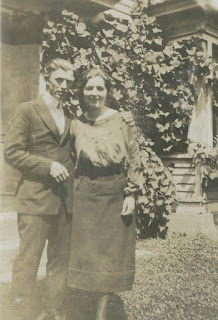YOUCAT Lesson 268
YOUCAT the catechism for Catholic
youth
268 Can a Catholic Christian marry a person from
another religion?
For Catholic believers, to enter into and live in marriage
with a person who belongs to another religion can cause difficulties for their
own faith and for their future children.
Given her responsibility for the faithful, the Church has therefore
established the impediment of disparity of religion. Such a marriage can therefore be contracted
validly only if a dispensation from this impediment is obtained before the
wedding. The marriage is not
sacramental. [1633-1637]
…….35mm slide above: …..Sunset at our
Flambeau River farm home. Here 10
children were raised by theirmixed marriage parents. Little Richard (b. 1939) died a baptized
newborn of just 9 days. …..268
Mixed marriages and disparity of cult
…….1633
In many countries the situation of a mixed marriage (marriage between a
Catholic and a baptized non-Catholic) often arises. It requires particular
attention on the part of couples and their pastors. A case of marriage with disparity of cult (between a Catholic
and a non-baptized person) requires even greater circumspection. –Catechism of the Catholic Church, Second
Edition
…….1634
Difference of confession between the spouses does not constitute
an insurmountable obstacle for marriage, when they succeed in placing in common
what they have received from their respective communities, and learn from each
other the way in which each lives in fidelity to Christ. But the difficulties
of mixed marriages must not be underestimated. They arise from the fact that
the separation of Christians has not yet been overcome. The spouses risk
experiencing the tragedy of Christian disunity even in the heart of their own
home. Disparity of cult can further aggravate these difficulties. Differences
about faith and the very notion of marriage, but also different religious
mentalities, can become sources of tension in marriage, especially as regards
the education of children. The temptation to religious indifference can then
arise. –CCC
…….1635
According to the law in force in the Latin Church, a mixed marriage
needs for liceity the express permission of ecclesiastical
authority.(Compare Codex Iuris Canonici, can. 1124.)137 In case of disparity
of cult an express dispensation from this impediment
is required for the validity of the marriage.(Compare Codex Iuris Canonici, can. 1086.)138 This permission or
dispensation presupposes that both parties know and do not exclude the
essential ends and properties of marriage; and furthermore that the Catholic
party confirms the obligations, which have been made known to the non-Catholic
party, of preserving his or her own faith and ensuring the baptism and
education of the children in the Catholic Church.(Compare Codex Iuris Canonici, can. 1125.)139 –CCC
…….1636
Through ecumenical dialogue Christian communities in many
regions have been able to put into effect a common pastoral practice for mixed marriages. Its task is to help such couples live out their particular
situation in the light of faith, overcome the tensions between the couple's
obligations to each other and towards their ecclesial communities, and
encourage the flowering of what is common to them in faith and respect for what
separates them. –CCC
…….1637
In marriages with disparity of cult the Catholic spouse has a
particular task: "For the unbelieving husband is consecrated through his
wife, and the unbelieving wife is consecrated through her husband."(1 Corinthians 7:14.)140 It is a great joy for the Christian spouse and for the Church if
this "consecration" should lead to the free conversion of the other
spouse to the Christian faith.(Compare 1 Corinthians 7:16.)141 Sincere married love, the humble and patient practice of the
family virtues, and perseverance in prayer can prepare the non-believing spouse
to accept the grace of conversion. --CCC




